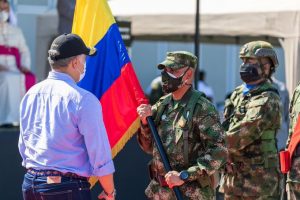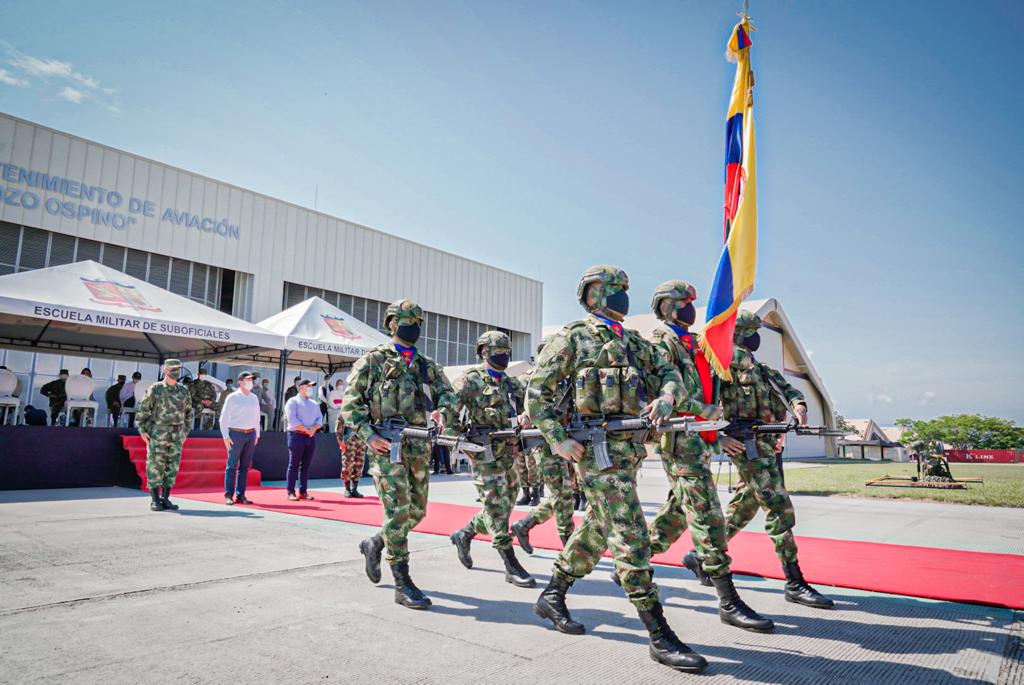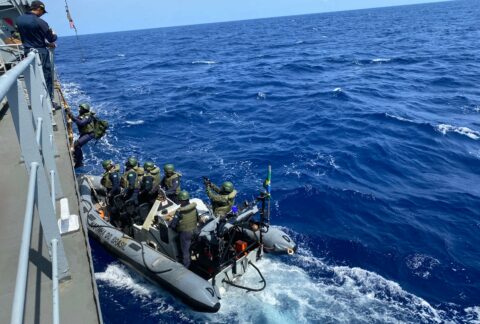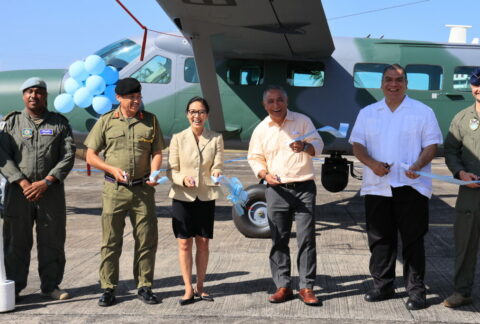Colombian President Iván Duque launched the Command Against Drug Trafficking and Transnational Threats (CONAT, in Spanish), an elite force of 7,000 Army service members, men and women, to strengthen offensive actions against these scourges, at the Tolemaida Military Fort in Tolima department, the Colombian presidency told the press on February 26, 2021.
“We have to confront narcotrafficking […] by breaking the supply and distribution chain of chemical precursors, dismantling laboratories, conducting targeted interdiction of trafficking, destroying money laundering structures, prosecuting cartel leaders, and swiftly terminating control,” Duque said at the CONAT presentation ceremony.
“We have to confront narcotrafficking […] by breaking the supply and distribution chain of chemical precursors, dismantling laboratories, conducting targeted interdiction of trafficking, destroying money laundering structures, prosecuting cartel leaders, and swiftly terminating control,” Colombian President Iván Duque.

The new command will consist of specialized elite units, including three brigades against narcotrafficking, the Deployment Force Against Transnational Threats, and the Brigade Against Illegal Mining Site Exploitation, General Eduardo Enrique Zapateiro, Colombian Army commander, said on Twitter. “This strategic unit will be the breaking point against narcotrafficking, a cancer that all Colombians have the moral obligation to eradicate,” he said.
CONAT will be under the command of Colombian Army General Juan Carlos Correa, “who has the background, the competence, and the knowledge to accomplish the goals set,” Duque added.
On February 26, the Colombian Military Forces’ General Command said in a statement that CONAT will focus its special capabilities on three key goals: to fight against narcotrafficking groups, to coordinate actions to eradicate illicit crops, and to combat illegal mineral exploitation. It will also combat transnational crime; human, wildlife, and arms trafficking, and all forms of transnational terrorism.
The Colombian State said that they are targeting leaders of fronts of the National Liberation Army (ELN, in Spanish), dissidents of the Revolutionary Armed Forces of Colombia (FARC, in Spanish), and the Clan del Golfo, the largest narcotrafficking gang in the country.
CONAT is planning to capture 14 specific criminals in 2021, including Dairo Antonio Úsuga, alias Otoniel, the ELN’s top leader; Nicolás Rodríguez Bautista, alias Gabino, head of the Clan del Golfo; and Luciano Marín Arango, alias Iván Márquez, a FARC dissident and former FARC commander, the Presidency said.
An investigation published by the Colombian magazine Semana on February 7 revealed that Iván Márquez lives in a condominium in Venezuela, allegedly under the protection of the Nicolás Maduro dictatorship, from where he operates narcotrafficking routes and plans terrorist acts against Colombia. “Wherever criminals are, they have to face justice, always in partnership with international intelligence organizations,” Duque told Radio Nacional.
FARC dissidents, ELN members, and paramilitary narcotrafficking gangs are currently fighting in Colombia over cocaine export routes and proceeds from illegal mining and extortion, the news agency France 24 reported on February 8. Colombia is considered the world’s top cocaine producer, it added.
The United Nations Office on Drugs and Crime (UNODC) said in its 2020 report that Colombia has 154,000 hectares of coca plantations. Most crops are still concentrated in Nariño and Norte de Santander departments, with 50 percent of all the cocaine in the country, the UNODC said.
In 2020, Colombia seized more than 500 tons of drugs, manually eradicated about 130,000 hectares of illicit crops, and destroyed some 830 labs, the Colombian government said on February 26. As of late February 2021, security forces had seized 54 tons of cocaine, a record amount, the Colombian newspaper El Tiempo said on February 24.









